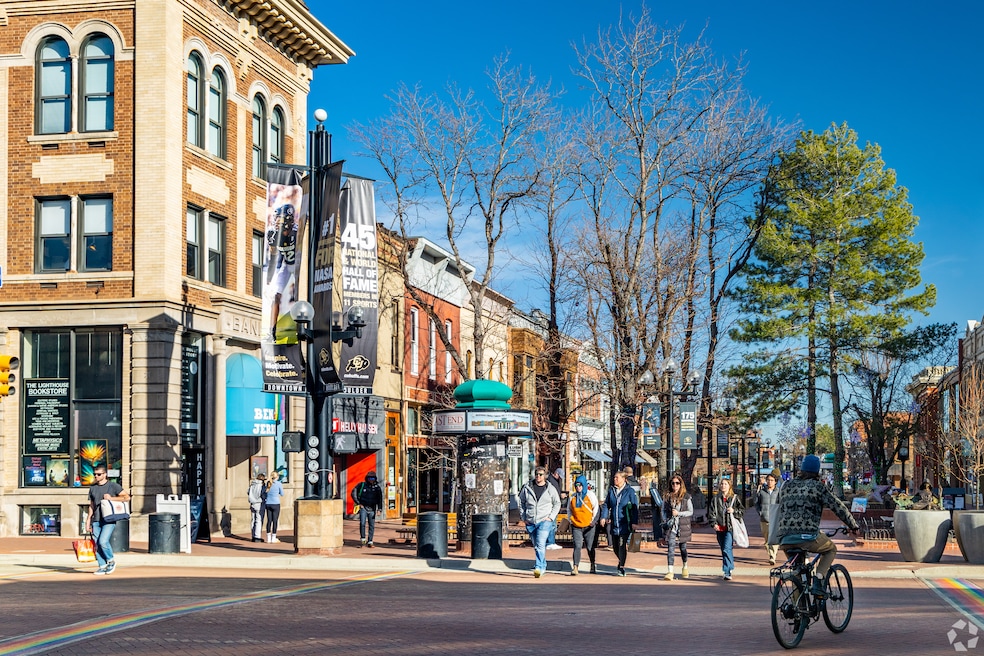Demolishing an existing home to make way for a new one would no longer be permissible without additional fees in Boulder, Colorado, if the City Council approves an ordinance being written.
The move comes after a city-commissioned report found that replacement homes are priced $875,000 to $3.5 million higher than the existing ones and suggested fees upward of $38,000 for single-family demolitions. If passed, Boulder would join several municipalities across the country that require similar fees in an effort to support affordable housing.
Consultancy Gruen Gruen + Associates conducted the report and found that these higher-priced homes bring higher incomes, which results in an increase in consumption and spending — and more jobs. Those additional jobs would require affordable homes for the new workforce. The city needs an estimated 10,700 housing units over the next 10 years to meet the demand, according to the Denver Regional Council of Governments.
The consultancy suggested fees of $15 per square foot for aboveground living space added to an existing lot and $38,000 for larger lot teardowns and replacements. The fees look to offset the loss of affordable homes and fund more workforce housing through the Affordable Housing Fund, which builds, rehabs and purchases housing in Boulder.
According to the report, demolition and renovation fees could pull about $1.2 million into the fund annually. This is based on the consultant's estimation of 30 single-family teardowns and replacements with fees of $30,000 and another 20 remodels subject to the home additions fee, totaling $15,000.
The city’s average home value is $1.28 million, according to Homes.com data, and it has long sought ways to create more affordably priced homes.
Boulder established the Inclusionary Housing program in 2000, which requires 25% of affordable housing units within new developments or an in-lieu payment. Infill projects have been exempted from this program but that could change with this ordinance.
It's not the first city to consider these fees
Other municipalities enacted similar levies but the rate and calculation methods vary.
Aspen, Colorado, which has a median sale price of $1.5 million, according to Homes.com data, charges an in-lieu fee similar to Boulder’s proposed ordinance. The town also limits demolitions to six per year, along with an 8.5% fee. These efforts were to limit the real estate market, so as not to overwhelm the municipality.
Sacramento, California, charges $3.56 per square foot, while Los Angeles assesses $10.02 to $21.53 per square foot for single-family residential projects.
Several Chicagoland suburbs — Evanston, Highland Park and Lake Forest — have demolition taxes ranging from $10,000 to $16,380 per demolished home.
Chicago’s City Council also approved new demolition fees last year to protect certain neighborhoods from gentrification. The city said developers were demolishing single-family homes, duplexes, and triplexes to build costly single-family homes. These surcharges include $20,000 per housing unit demolished and $60,000 per building in the Pilsen, Avondale, Hermosa, Humboldt Park, Logan Square and West Town neighborhoods.
These surcharges go toward the Chicago Community Land Trust to fund affordable housing. The demolition fees were launched as a pilot program in 2021. In one year, the fees brought in $120,000, according to the housing commissioner, and demolitions dropped by 88%.
Boulder’s makes bold moves for more affordable housing
To meet housing demand, the city has looked to other efforts to pull in affordable housing funds.
Boulder County enacted an Affordable and Attainable Housing Tax at the beginning of the year, which the county predicts will generate $16.7 million in the first year to be used for affordable housing through an added 0.185% sales and use tax.
The Boulder City Council may charge second-home owners a vacancy tax to pressure them to rent out their underused property. They will discuss the matter next month.
In February, the City Council made it easier for single-family homes to be converted into duplexes and triplexes, creating lower-priced housing options.

